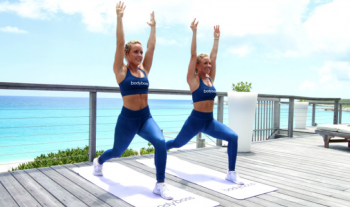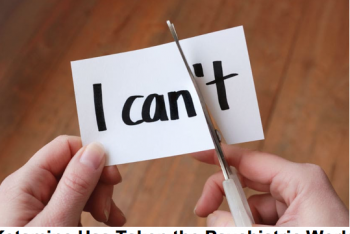A couple weeks ago I realized I was a bit too bulky for my current swimming goals. For those of you who don’t know me I tend to dive deep into a subject, and that subject for the past 6+ years has been “Biohacking” with an emphasis on nutrition, strength training and recovery.
I successfully gained strength; decreased body fat, increased lean muscle mass, improved recovery, and drastically reduced my training time especially after my collegiate swimming career ended. For many years I have been hovering between 195-205 lbs at a height of 6’1” with a consistent sub 7% body fat. Not bad for lifting twice a week and swimming once in a blue moon during that time. Nutritional Ketosis is magical.
Last year I shifted my focus back to the pool and started training. Then I broke my ankle and tore some ligaments, got hit by a car on my bike and took some more time off. Although I was focused on swimming I didn’t realize how much my current physique was working against me in the water. It took many months, hints from friends like Vladimir Morozov, several painful races, and dozens of practices where my lactic acid level nearly caused me to blackout, for me to realize I needed to make a change.
Swimming is a sport where many of my sprinter competitors are anywhere from 5’9” to 6’9”giants and ranging from 160-240 lbs. Although I should know not to compare myself to others, I was. And the strength bug had bit me hard. I was also living up to others expectations of “being a big eater” and trying to fit the role of a “strength coach”.
I had read about of the positive benefits of intermittent fasting ranging from improved cognitive performance, defying aging, improved insulin sensitivity, DNA repair, improved hormone function and much more. Throughout human history there have been many famous fasters and thinkers such as Plato, Gandhi, Pythagoras, and Mark Twain.
For the past year or so I have been following an IF (Intermittent Fasting) and “Carb back loading” regiment I discovered through Ben Greenfield. It was simple, eat nothing after dinner and make sure at least 12-16 hours passes before you break your fast. Yet I was still eating 3+ large meals per day consisting of lots of vegetables, meats, fats, eggs and some fruits. The result: I was still at 200 lbs.
Over the past two weeks I have been implementing a simple protocol to decrease muscle mass, yes I said it, I want to lose muscle, as well as decrease body fat and my coach agreed it was necessary. (It is possible to gain muscle while using IF so don’t freak out) I simply extended the fast based on my practice schedule. My fasts typically last 16 hours but range to 36+. I’m not gonna lie, it sucks in the beginning, but then something peculiar happens, you start having more energy, brain fog diminishes and stress levels decrease. One of my favorite aspects of IF is the flexibility and the freedom from the constant worry of “what and when is my next meal going to be!?” that many swimmers and elite athletes face.
As I write this article the last meal I had was nearly 24 hours ago. I weighed in at 189 lbs this afternoon!! This number would be lower had I not just spent the weekend in Big Sky, Montana for my best friends bachelor party drinking large quantities of beer and eating absurd amounts of steak, bison, pork, eggs, chicken and beans.
I awoke at 6 this morning, had my morning water and Matcha Green Tea before practice. I swam for over 2 hours doing one of the more challenging practices I have done in recent years written by legendary coach and fellow Wildcat Coley Stickels. I had a smoothie consisting of berries, spinach, chard, kale, cacao, cinnamon, and a banana. I never would have dreamed that this small amount of sustenance would not only fuel me to perform in a hard swim practice but also give me the energy to write this article. I hate writing articles. And usually after practice it takes a serious conscious effort to ascend a flight of stairs, nonetheless even consider voluntarily writing an article. But here I am, bright eyed and happy, typing away on a Saturday afternoon on an empty stomach. If you want to learn some of the science behind IF click this link for 15 minute Ted Talk on the subject. But if you just want to know how to get started Ill show you how.
Depending on your goals, fitness, personality and lifestyle you can loosely follow this basic protocol. IF will help you decrease body fat, defy aging, and improve productivity. (If you are young and still growing this may not be for you, if you choose to do it anyway make sure when you do eat, the meals are larger than normal)
· Start with one day per week. Make your goal to be 12 hours or whatever it is all that matters is that you start. Then start to extend the fast.
· Note the time of your last meal of the day (many people don’t realize how many random little snacks they have between dinner and bed)
· When you wake up simply drink 20-30+ oz of spring water (possibly with squeezed lemon or lime juice) After that continue drinking water, tea or coffee.
· Note the time of your first meal and do the math. As always writing this down will help you.
· It will TRULY SUCK at times. Headaches, fatigue, irritability, and other withdrawal symptoms are common.
Check out these books on the subject from Amazon!
Intermittent Fasting For Women
That’s its. From there you can explore it as you wish. There are several books on the subject if you really want to delve into it.
Please leave a comment, hit me up facebook, twitter, Instagram @LukePechmann, or fill out the contact us form and leave me a question. I want to hear how you guys do with this!
WELLNESS--You may be familiar with the term “Sound Bath” as it has become more and more popular, especially within the spiritual, yoga, and meditation communities. Although it has nothing to do with getting wet, many would liken it to being cleansed from the inside out.
WELLNESS--Over the past few months I have been using an FDA approved, homeopathic, transdermal, Human Growth Hormone (HGH) gel. Like many people, I am always on the lookout for the next breakthrough product that will help me remain healthy, young, and vital.
WELLNESS--I’ve been taking a social media vacation. I needed a break. The more people I speak with, it seems that I am not alone.
WELLNESS--We have been having record breaking heat in Southern California and with the planet continuing to warm up, there’s a good chance we have not seen the end of it.
This past week Los Angeles and San Diego have felt more like Arizona with temperatures reaching 117 in some places. Heat records all over southern California were toppled and at one point in Los Angeles alone there were over 32,000 residents without power.
WELLNESS--For starters, the all or nothing attitude towards exercise is not the mindset we want to hold.
WELLNESS--Last week two high profile celebrities Kate Spade and Anthony Bourdain took their own lives.














